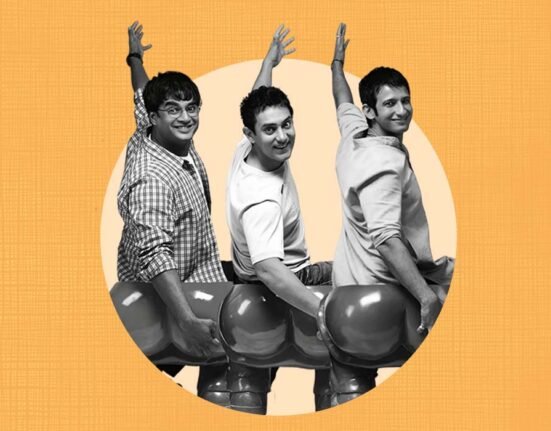Have you ever felt like you’re not doing enough? Say, even if you excel in your academics, you feel the desperate need to develop more skills, start a new course, or look for internships. Most people assess them in a relative sense, that is, if she is involved in 5 projects, why am I only in 2? The thing is, has there ever truly been an objective parameter across which you can determine whether you are doing enough or not?
Read More: “If Only I was like her!!”: How to Stop the Comparison Cycle
Hustle culture has been slowly growing as a lifestyle since the advent of industrialisation back in the 1800s but has gained more wind in the past few years. Hustle culture, essentially, propagates and sustains a culture based on working continuously on multiple projects to enhance human labour and maximize productivity which leads to more profit. It centres human life around work and productivity. Some authors have even compared it to a modern form of slavery! This has also been called ‘burnout’ culture or ‘grind’ culture. It has been seen as the outcome of capitalism becoming the dominant economic system and the increasing consumptive behaviour.
Capitalism, Competition, Consumerism
Hustle culture did not just emerge out of nowhere, it is based on a major economic ideology namely Capitalism and it is sustained by phenomena such as Consumerism and Competition. Let us take a closer look at all of these terms and understand their relevance in daily life:
Capitalism

Capitalism is an economic system that originated alongside the Industrial Revolution in Britain in the 1800s. It is based primarily on private ownership of both the means of production and the profit accumulated. The main objective is to maximize profit and enhance human skills to extract productivity.
Capitalism has been characterized as driven by self-interest and accumulating profit as the central and end goal. Wealth and economic gain are centred in the hands of a few. This separates the two classes (rich and poor) much more than before. Essentially, the message becomes clear that unless you partake in capitalism, you will lose out on a luxurious life. Thus, capitalism puts us in a cycle of continuous effort and increases Competition.
Competition

Competition as mentioned right above has also increased in the past few years. Let’s take the example of our entrance exams nowadays. While being in the 90th percentile used to be highly impressive, now, being in the 98th percentile does not guarantee admission to the top-ranked college.
Furthering the point made above, individuals feel that if they are not working hard enough, someone will defeat them in the race for the acquisition of wealth. This creates a lot of psychological burden and triggers a ‘fight or flight’ response which forces us to push ourselves harder and harder into oblivion. This causes burnout or complete exhaustion.
Consumerism

Consumerism refers to the economic and social system that holds the ideal that increasing consumption of various products and services is the goal to be attained. Consumptive behaviour refers to the pattern in which people have begun consuming goods. Research has suggested that consumptive behaviour has begun to be characterized by irrational desires to consume.
It can be observed as of late that most of us desire a luxurious life filled with amenities. This instills within us the drive to work and to earn and thus, we become part of the rat race of fame and fortune, becoming part of the competition and the overall capitalistic system. This, in turn, makes us insatiable and inherently unsatisfied. A team of researchers have drawn parallels between psychoanalysis and hustle culture where the superego acts as a repressive actor forcing us to oblige to a larger social and economic system (here, capitalism) to satisfy our id (our insatiable consumerism) while forcing our ego to act (never-ending effort).
Alienation, Burnout, Distress
Hustle culture has a lot of psychological impacts which are usually repressed because dealing with them requires a lot of introspection which can cause individuals to question the goals they have set as well as the daily lives they are carrying out which can take a major toll on the individual. Funnily enough, hustle culture requires you to keep busy at all times and leaves no space for reflection. Let us take our magnifying glass to the psychological impacts of hustle culture:
Alienation
Alienation is a term originally given by Karl Marx to refer to a phenomenon that occurs in capitalism. Marx’s alienation took place in 4 aspects: alienation from the process of labour, the fruit of labour, others or the environment and self. In psychology, it refers to the perception of disconnect a person may feel from the environment, society, close ones and sometimes, even themselves. Psychological phenomena such as depersonalisation and derealisation refer to how a person may feel disconnected from self and others, respectively, as given in APA. Statistics indicate that nowadays, over 50% of people experience some form of dissociative disorder which includes depersonalisation and derealisation.
Read More; You are not Alone: Understanding the Depths of Depersonalization Disorder
These take place in an individual when the repeated constant effort with a promise of future reward gets too mundane and monotonous leaving no space for creativity and individuality. This further makes people lose the essence they hold regarding life. According to Erich Fromm, a Man becomes an Alien, that is the individual becomes separated from himself and begins to associate himself in the same regard as things, he becomes disconnected from the world, others, and himself as his creator.
Burnout
Burnout refers to complete mental, emotional and physical exhaustion as a result of being overworked and overburdened. This has been theorized and defined time and time again. According to the Work and Wellbeing Survey conducted by the American Psychological Association in 2021, 44% of employees reported increased physical fatigue, 32% were high on emotional exhaustion and 26% reported a lack of motivation and energy.
Hustle culture focuses on continuing work and effort with no breaks which is bound to result in an exhaustive breakdown. It is a culture that propagates the work ethic of a robot but we are humans after all. The constant ‘grind’ also results in our losing the creative space to innovate and rather simply obey orders from employers or higher authorities. We all begin to follow successful work models that have already been set rather than going our path which may become too costly.
Distress
Distress is negative stress characterized by increased or rapid heart rate, nervousness, and prolonged mental pressure which can impair mental functioning as well as result in other physical symptoms such as body aches and so on. The amount of expectations and deadlines we put on ourselves can be detrimental. It causes us to always be unsatisfied with the results no matter what as well as pressurizes us to work unbelievably long hours. Since we cannot work effectively during high stress, it causes us to blame ourselves even more which leads to a warped self-image and constant feeling of worthlessness. It also creates a lot of future anxiety which leads to a constant fear of losing or missing out that we stay under.
Read More: 6 Ways to Prevent Stress From Taking Over Your Life
Break The Cycle
Unfortunately, hustle culture is very much the trend right now and it can be extremely difficult to break this cycle while still having the desire to achieve. Being ambitious is an honorable virtue but the way to attain it should not come at the cost of your physical and mental health. There are some ways to break this cycle:
- Take a Break! Work is important undeniably, however, so is taking breaks. The famous Pomodoro technique for studying involves studying constantly for 25 minutes, then taking a break for 5 minutes and after 4 such intervals, taking a break for about 15 minutes. This is proven to improve learning and enhance productivity. Taking breaks is extremely important for your mental and physical health. Let yourself be a human.
- Introspection and Refocus are two things that get lost in the blur of hustle culture. Introspection refers to looking inward. It helps us learn more about ourselves, understand ourselves and identify our flaws and gains. We must look inward and analyze our values and motives for doing what we are doing. If you have become a part of hustle culture, why is that? What are you running after? You have to determine how important that is to you, and what other method can you adopt to achieve it rather than exhausting yourself.
- Innovate and Be Creative. Leave a little room in your schedule to dream and let those creative juices flow. You have to rework and innovate ideas. If you commit yourself to someone else’s dreams, how are you ever going to achieve yours? Partake in expressive activities such as music, art, dance and so on. Let your individuality shine through the dull lens of hustle culture.
Read More: Dance Therapy: Discover Yourself Through Movement
Hustle culture is growing continuously and it has detrimental impacts. We have to reassess our goals and desires to break out of this trend. Individual effort becomes collective effort so we must work together to completely bury this hustle culture.
References +
- Taylor, H. (2023, July 18). 50+ Burnout Statistics That Will Shock You into Action. Runn. https://www.runn.io/blog/burnout-statistics#how-common-is-employee-burnout
- Marx’s Theory of Alienation on JSTOR. (n.d.). www.jstor.org. https://www.jstor.org/stable/2105083
- An introduction to sociology. (n.d.). https://www.asanet.org/wp-content/uploads/savvy/introtosociology/TeacherResources/IMForTeachingWorkerAlienation.html
- Maharani, A. P., Martono, N., & Rizkidarajat, W. (2024). The Behavior of Hustle Culture among Students in Faculty of Social and Political Science Jenderal Soedirman University. International Journal of Multidisciplinary Sciences, 2(1), 24–36. https://www.researchgate.net/publication/377352209_The_Behavior_of_Hustle_Culture_among_Students_in_Faculty_of_Social_and_Political_Science_Jenderal_Soedirman_University
- Ruggeri, C. (2023b, May 16). Research Shows Hustle Culture Does More Harm Than Good. Leaders.com. https://leaders.com/articles/company-culture/hustle-culture/
- Fisher, J., & Silverglate, P. H. (2022, June 22). The C-suite’s role in well-being. Deloitte Insights. https://www2.deloitte.com/us/en/insights/topics/leadership/employee-wellness-in-the-corporate-workplace.html
- Diaz, N. (2022, November 26). Psychoanalytic Reflections on Hustle Culture – Nicholas Diaz – Medium. Medium. https://medium.com/@nicholasadiaz7/reflections-on-hustle-culture-23aac1c6de6f
- Balkeran, A. (n.d.). Hustle culture and the implications for our workforce. CUNY Academic Works.https://academicworks.cuny.edu/bb_etds/101/
- What is capitalism? (2018, May 10). IMF. https://www.imf.org/en/Publications/fandd/issues/Series/Back-to-Basics/Capitalism
- Foroux, D. (2022, August 22). The Pomodoro method: take strategic breaks to improve productivity. Darius Foroux. https://dariusforoux.com/takebreaks-pomodoro/













Leave feedback about this